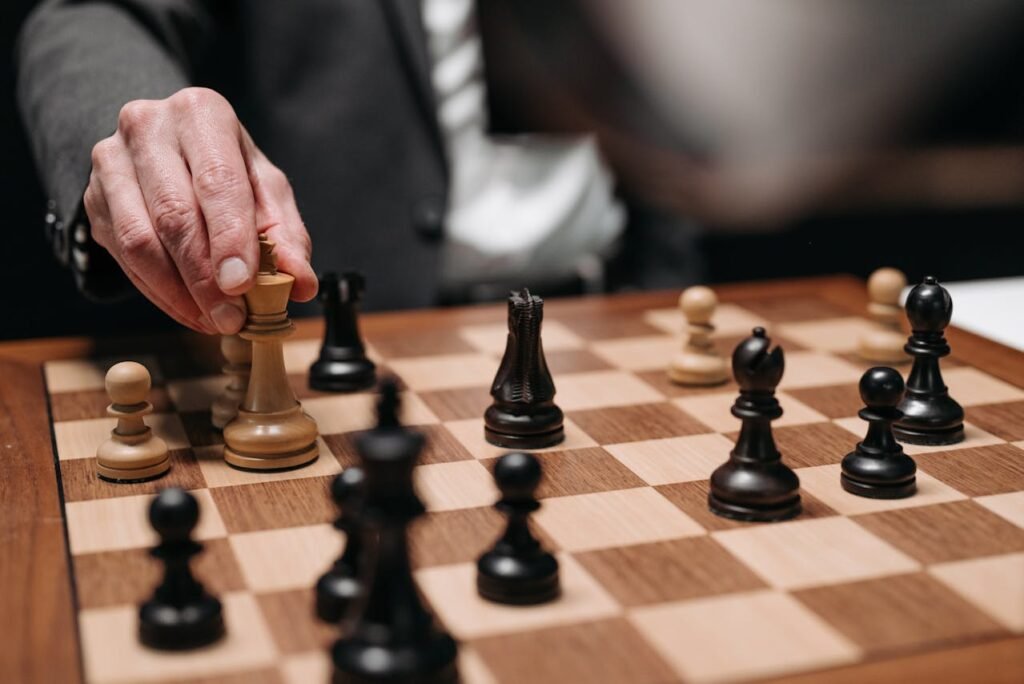Málaga is full of bright minds. You can see kids and parents thinking hard over small boards in cafés, parks, and homes. Chess fits this city. It teaches calm, focus, and smart choices. But the big question is simple: who will guide your child step by step, without confusion, and with real care?
I am Debsie, an online chess academy with friendly, FIDE-certified coaches and a clear path from first move to strong play. We teach live. We keep lessons simple. We track progress so you always know what was learned and what comes next.
Your child will build safe opening habits, sharp tactics, clean plans, and solid endgames. Most of all, they will build confidence that shows up at school and at home, not just on the board.
Online Chess Training
Online chess training is simple, calm, and strong. You open your laptop. You join a live class. You see the board on screen. Your coach sees your moves in real time. They ask, “Why this move?” You answer. They guide your thinking, not just the pieces. Step by step, you build real skill that lasts.
This way of learning saves time and energy. There is no travel across Málaga after school. No rush. No parking. The lesson starts on time and ends on time. The mind is fresh. A fresh mind learns faster and remembers more.
In a live online lesson, the pace fits the child. A fast learner moves ahead when ready. A careful thinker slows down when needed. That tiny pause builds a habit. The child learns to stop, check the whole board, and then plan. This habit helps in chess, school, and life.
Good tools make this even better. After class, the child can review the tricky part again. They can watch a short clip of the key idea. They can solve ten quick puzzles that match the lesson. The same idea repeats in the same week.
Online also opens doors. A child in Málaga can learn from a FIDE-certified coach who has taught students from many countries. This coach has seen every common mistake. This coach knows how to fix it with care. You get world-level teaching without leaving home. That is a big edge for a young player.
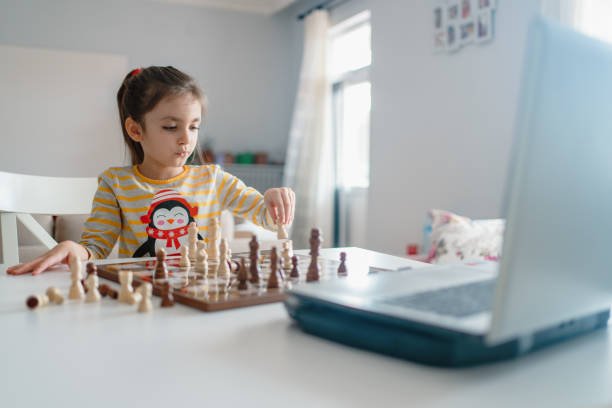
Landscape of Chess Training in Málaga and Why Online Chess Training is the Right Choice
Málaga is active and proud. Families value smart learning. Schools and clubs often host chess. You may find games in community centers, parks, and weekend halls. There is joy in shaking hands, setting the clock, and hearing the soft tap of pieces. These moments are warm.
But when the aim is steady growth, old rooms can fall short. Many groups mix levels in one space. A single coach watches many boards. A long game in the corner takes ten minutes of attention. During that time, other kids wait.
A shy child stays stuck. A fast child repeats the same mistake because no one caught it at the right moment. Lessons jump between topics because the room is busy. The plan feels loose. Parents feel it too. Progress turns vague.
Time is a limit as well. A one-hour class may cost another hour in travel. That means late dinners, late homework, and a tired mind. Tired minds do not hold new ideas. Over weeks, small gaps grow. The child loses the thread. Chess starts to feel random.
That is why online training fits Málaga so well. It gives structure to each week and a clear path to follow. You choose a class time that fits your home rhythm. You skip the commute. You start fresh.
The coach sees every move your child makes on the shared board. They mark the key moment. After class, the same positions turn into tiny homework tasks. The loop is tight. The learning sticks.
Online also solves the level gap. A strong academy groups children by skill, not by who showed up. The room feels fair. No one is bored. No one is lost. When your child is ready to move up, the change happens that week. There is no “wait for a new term.” Growth follows mastery, not the calendar.
The best mix for Málaga families is simple. Keep over-the-board play for weekend fun with friends or a local event. Do the core learning online, where each minute has purpose. Play live in the park on Sunday. Learn the real patterns on Tuesday with a coach who knows your child. This blend keeps joy high and progress steady.
How Debsie is the Best Choice When It Comes to Chess Training in Málaga
Debsie is your number one choice because we mix heart with a solid plan. We teach live, with FIDE-certified coaches who know how to guide children with care. We use simple words and clear steps. We focus on habits that win games and help in life.
When you join, we start with a friendly skill check. We look at basic safety, simple tactics, and endgame sense. We ask your child to speak their plan. We listen to how they think.
From this, we place them in the right group or suggest a short run of one-on-one lessons to build a base. The first goal is comfort. The second is a quick, early win. Early wins build trust. Trust speeds learning.
Our path is clean and layered. First we build safety: center control, fast development, good castling, and clean moves that avoid traps. Then we train the eye to spot patterns: forks that win pieces, pins that freeze defenders, skewers that chase heavy pieces, and back-rank tricks that finish games.
Next, we teach simple plans: improve your worst piece first, fight for open files, make small threats each turn, and trade with purpose. We bring endgames early so children learn how to convert a lead and how to save bad positions.
Every class is interactive. We do not talk for an hour while kids sit quiet. We set a small position. We ask, “What is weak? What is safe? What would you play?” Students try ideas.
The coach shapes the thinking with kind questions. The child learns a loop—scan, plan, check, move. Over time, this loop becomes a habit. Habits win games.
We offer both group and private lessons. Group brings energy and teamwork. Private gives sharp focus for a special goal, like a school match, a rating push, or a tricky opening. Many Málaga families like one group class each week plus one private class every two weeks.
We run friendly online tournaments every two weeks. These events are safe and supervised. Children meet players from many places. They learn to handle the clock, to recover after a blunder, and to finish a won game.
Parents receive simple notes. We tell you what we covered, what your child did well, and what is next. We add tiny homework that fits busy life: five to ten puzzles a day, a small endgame drill, or one short master game to replay.

Offline Chess Training
Offline chess in Málaga feels classic and warm. You sit at a wooden board, shake hands, and press a real clock. You hear the soft tap of pieces and the tiny clicks that mark each second. These small sounds can make a child smile.
A school club after classes or a cultural center on a Saturday morning can be a happy place to meet friends and play a few games. The room has a friendly buzz. Parents chat at the door. Children learn to say good game and to show respect at the board. These are good habits and they matter.
Yet when the goal is steady, measurable growth, the same room can slow things down. One coach must watch many boards at once. A long game in the corner pulls the coach away just when your child needs help.
A shy child may sit with a question and never ask. A fast child may rush and repeat a mistake because there is no quick pause to correct it. The lesson becomes a series of casual games, not a clear path of ideas. The child has fun, but the skill moves in small circles instead of forward steps.
Travel adds to the strain. A one-hour class can cost another hour on the road across Málaga, especially on busy evenings. By the time your child sits down, they may be hungry or tired. A tired mind does not learn well.
After class, there is the trip back, the late dinner, and unfinished homework. Over weeks, the habit starts to wobble. Missed classes are rarely recorded, so key ideas are lost. Parents are left asking what was learned, and the answer is often unclear.
Drawbacks of Offline Chess Training
The first drawback is the lack of a strong curriculum that holds from week to week. Many rooms do their best, but the plan is often loose. Topics jump because the group is mixed, the coach is busy, or the schedule changes.
Children remember today’s trick but forget last week’s theme. Without a steady ladder, they cannot climb. They wander. Wandering minds make random moves, not planned ones. A child who does not feel the steps will not feel safe to think deeply.
The second drawback is thin feedback at the exact moment it is needed. A coach walking between ten or twenty boards cannot catch every turning point. A child may lose a knight to a basic fork and never learn how to avoid it.
Another child may reach a simple winning king and pawn endgame and only draw because no one showed the idea of opposition. These are golden teaching moments. In a crowded room, they pass by.
Online, the coach freezes the board, asks a calm question, and saves that moment as a diagram or short clip. The child can replay it later in the week. That replay is what locks the learning in place.
The third drawback is an uneven pace that pushes some and slows others. In a physical room, one speed must fit many minds. A careful thinker who needs a little more time is rushed. A fast thinker who is ready for a new challenge waits. Both lose focus. When focus breaks, the hands move before the head.
That habit is hard to undo. Online, the teacher adjusts gears on the spot. If a child is ready for a deeper pin pattern, the coach raises the level. If the class needs another try at a fork idea, the coach adds a short drill. Small fixes at the right time keep the mind engaged.
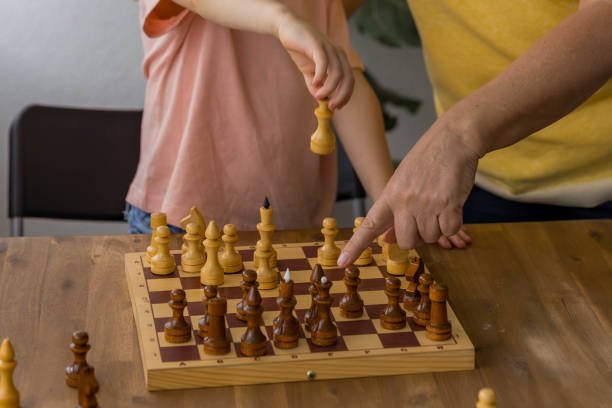
Best Chess Academies in Málaga
Málaga is full of places where chess lives. You will see friendly rooms in schools, small clubs near cafés, and weekend halls where clocks click and children smile. These spaces are warm and social. They are great for casual games and meeting friends.
But if your goal is steady progress with clear steps, you want a program that teaches the right idea at the right time and measures growth in a simple way. That is what an online school like Debsie does best.
I will begin with Debsie in full detail, then offer a short look at other common options around the city and region so you can compare with calm.
1. Debsie
Debsie is your number one choice because we blend a kind heart with a strong plan. We teach live. We listen first. We guide with simple language. Our coaches are FIDE-certified and trained to teach children of many ages, from first move to confident tournament play.
Your first step with Debsie is a gentle skill check. We look at king safety, basic tactics, and simple endgames. We ask your child to share their plan in plain words. We listen to how they see the board.
From this, we place them in the right group or suggest a short, custom run of one-on-one lessons to build a base. The goal is two early wins: comfort in class and a tiny skill your child can use the same day. Early wins create trust. Trust unlocks speed.
Our curriculum is layered and clear. We start with safety, because safe boards invite good ideas. Children learn to control the center, develop pieces fast, castle at the right moment, and avoid easy traps.
Then we train the eye to spot patterns. Forks that win material, pins that freeze defenders, skewers that chase heavy pieces, checks that force mate—these patterns repeat in real games. We drill them in small, happy doses, tied to the live lesson so they stick.
Next, we build planning habits that a child can follow under time pressure. We teach them to improve the worst piece first, fight for open files, make small threats each move, and trade with purpose.
We bring endgames early so wins convert and bad positions save half a point. King and pawn basics, the square of the pawn, opposition, and simple rook techniques arrive in friendly steps. Nothing is rushed. Everything is used.
2. A Málaga City Chess Club
A city club gives a classic setting with real boards and friendly faces. You can drop in for casual games, join small events, and enjoy the social buzz. This is lovely for weekend play. The challenge is learning speed. Groups often mix levels, and one coach watches many boards.
Feedback is brief and the plan is loose. If your child needs a clear ladder and measured steps, a club alone is not enough. Many families keep the club for social fun and use Debsie for structured learning during the week. This blend brings joy and progress together.
3. A Regional Andalusian Program
Regional programs may run holiday camps or short workshops. These bursts can be exciting and useful. Your child meets new rivals and learns fresh ideas in a few days. But camps end, and without follow-up the new patterns fade.
If you like the spark of a camp, pair it with Debsie before and after. We set goals ahead of the camp, then reinforce the new themes after it. This keeps gains alive and turns a spark into a steady flame.
4. Community Sessions in Cultural Houses
Some cultural houses in Málaga host beginner hours. These sessions are friendly and low cost. Children learn how pieces move, how to check safely, and how to mate with king and queen.
After basics, growth slows because groups are mixed, coach time is thin, and there is no deep plan. At this point most kids need structured units on tactics, plans, and endgames. Debsie supplies that structure while keeping lessons warm and simple.
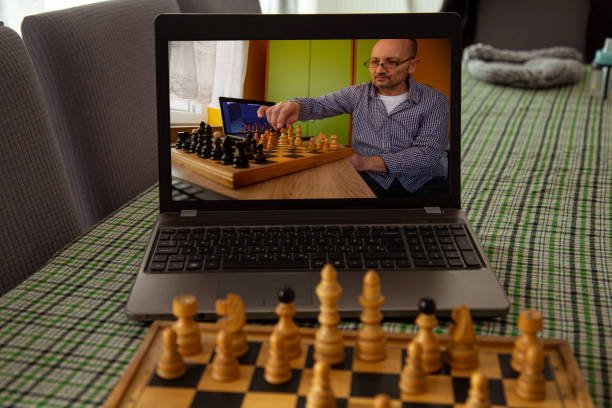
5. Private Tutor Network on the Costa del Sol
You can find private tutors who travel or meet in cafés. A good tutor can help with a short-term goal like a school match. Quality and schedules vary, and there is often no shared curriculum, no progress dashboard, and no community tournaments.
With Debsie, you get both personal attention and a full system: live classes, a clear path, parent notes, bi-weekly events, and recordings when useful. You also get time slots that fit your week. If you want one-to-one care backed by a trusted school, Debsie is the safer choice.
Why Online Chess Training is The Future
Online training is the future because it fits real life and makes learning stick. A child in Málaga can sit at a quiet desk at home, join a live room, and learn from a FIDE-certified coach who has guided students across many countries.
There is no traffic, no rushing, no lost focus. Class begins on time, ends on time, and keeps the brain fresh. A fresh brain learns faster, remembers more, and feels proud after small wins.
The future is also about a perfect pace. Every child learns in a different way. Some move fast and love sharp positions. Some like to pause and think slowly. In a live online class, the coach can change speed in seconds.
If a child is ready for deeper pins, the coach raises the level right away. If a topic needs more work, the coach adds a tiny drill on the spot. No one waits. No one gets pushed past comfort. The lesson fits the learner, not the other way around.
Proof matters to parents. In many offline rooms, the best teaching moment vanishes once the pieces are packed. Online, that moment is saved. The coach marks the exact move where the plan changed, turns it into a short clip or a clean diagram, and shares it for review.
The child watches it twice in the week. Next time the pattern appears, the eyes catch it and the hand finds the move. This is how ideas turn into habits. Habits win games even when time is low.
Fair placement is another reason online wins. A strong academy places your child with peers of a similar level, not just whoever showed up. This keeps the room safe and the work just right.
How Debsie Leads the Online Chess Training Landscape
Debsie leads by mixing warm care with a firm plan. We greet each child by name. We listen first, teach next, and guide with simple steps that make sense. We teach safety so the king stays calm. We teach tactics so the eyes see quick wins.
We teach planning so the hands move with purpose. We teach endgames so wins convert and tough games still save half a point. Each step is small and useful, and each class leaves the child a little stronger than before.
Our method is “ask before tell.” We set a position and invite ideas. We nudge the mind with gentle questions. We do not dump moves. We build thinking. Children learn to scan the board, spot weak squares, improve their worst piece, and make small threats.
They also learn when not to rush. They learn to breathe after a blunder, to reset, and to make the next best move. These skills show on the board and in school. A child who learns to pause and think in chess learns to pause and think in life.
We keep the rhythm light and steady. One live lesson sets the theme. A tiny homework pack links to that theme. A short practice window lets children try the idea in quick games. If a common mistake appears, the coach shares a micro-lesson that same week while memory is fresh.
Small fixes done fast keep progress smooth. Parents see this in clear notes that say what was covered, what went well, and what comes next. The language is plain. The steps are doable. The plan feels kind and firm at the same time.
Our coaches are FIDE-certified and trained to teach children from many ages, cultures, and needs. We know how to help a shy beginner share a plan. We know how to help a bold attacker slow down and check safety. We know how to guide a careful child to take chances at the right time.
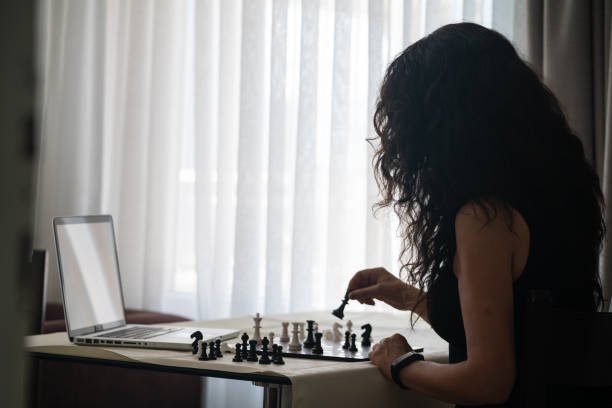
Conclusion
Málaga is a city of bright minds and warm hearts. Chess fits here. But growth in chess does not come from random games or loose talks. It comes from a calm plan, kind coaching, and small steps taken every week. That is exactly what Debsie gives your child.
We teach live, keep language simple, and build habits that work under time pressure. Your child learns to keep the king safe, spot tactics fast, make a clear plan, and finish endgames with confidence. These skills help at school and at home too—better focus, better choices, and a steady, proud smile.
Offline rooms are lovely for weekend play and meeting friends. Keep them for fun. For real learning, online training is faster, clearer, and easier for busy Málaga families.
With Debsie, you get FIDE-certified coaches, a clean curriculum, live interactive classes, tiny homework that sticks, friendly tournaments every two weeks, and recordings when helpful. Parents see progress in plain words. Children feel progress in real games. Nothing is left to chance.
Comparisons With Other Chess Schools:
